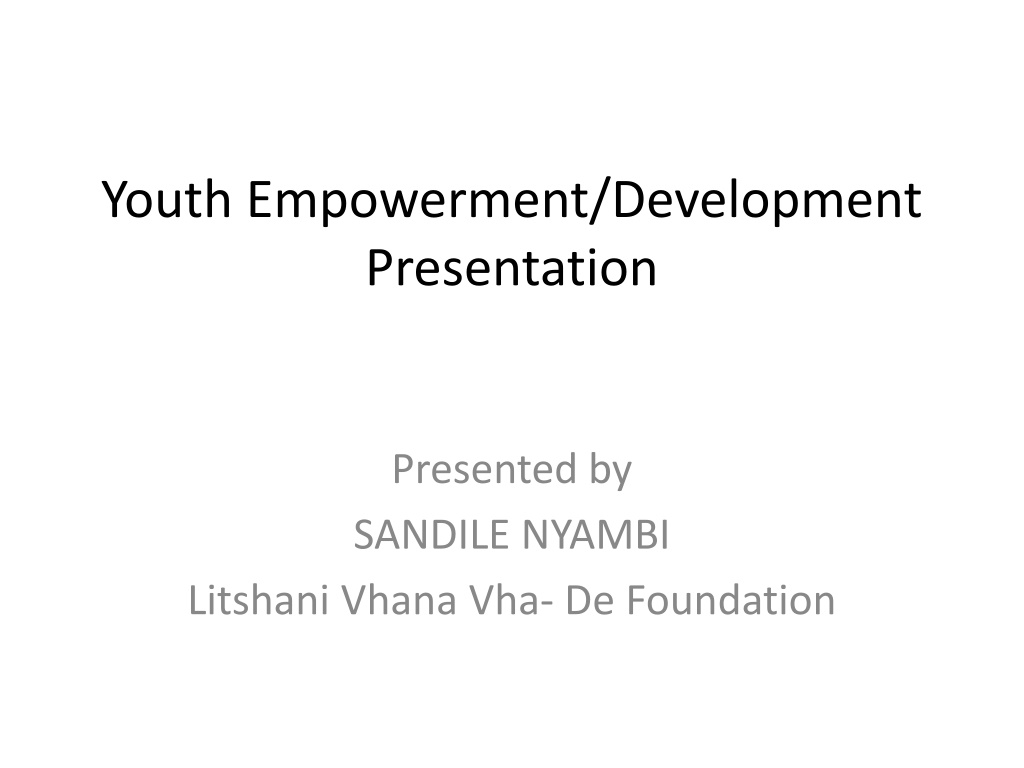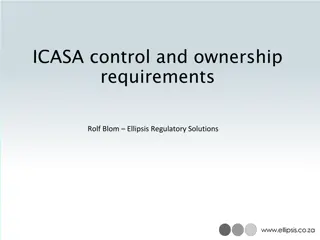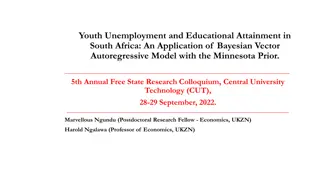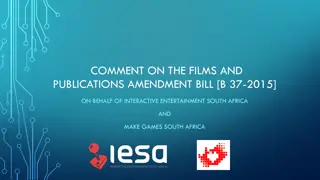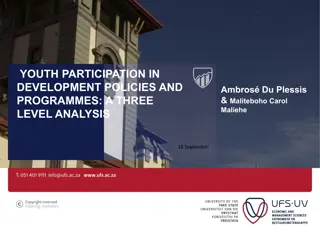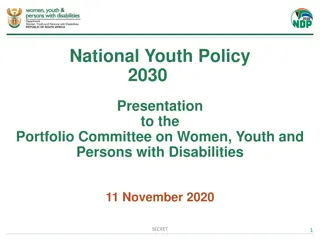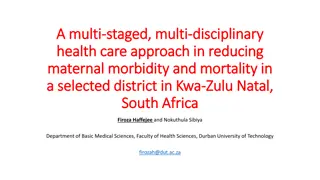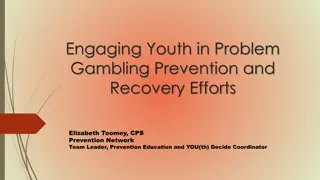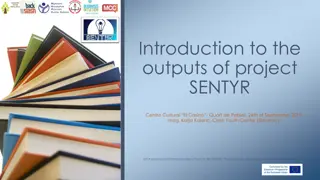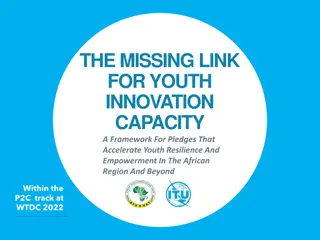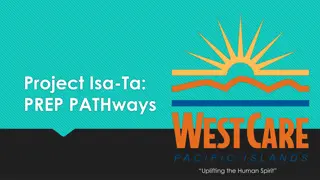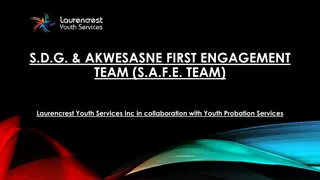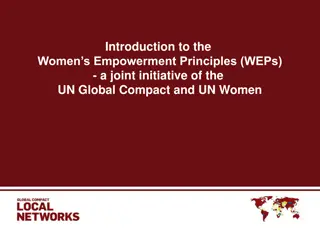Explore Youth Empowerment: Initiatives and Challenges in South Africa
Delve into the concept of youth empowerment, its key elements, and the efforts made to empower the youth in South Africa, particularly in Thohoyandou. Understand challenges faced by organizations in this process and the expected outcomes. Discover theories like Empowerment Theory and Participation Theory, and the importance of avoiding youth manipulation and decoration in participation strategies.
Download Presentation

Please find below an Image/Link to download the presentation.
The content on the website is provided AS IS for your information and personal use only. It may not be sold, licensed, or shared on other websites without obtaining consent from the author. Download presentation by click this link. If you encounter any issues during the download, it is possible that the publisher has removed the file from their server.
E N D
Presentation Transcript
Youth Empowerment/Development Presentation Presented by SANDILE NYAMBI Litshani Vhana Vha- De Foundation
Presentation Outline What is Youth Empowerment? What are the elements of Youth Empowerment How to empower the Youth of South Africa Challenges of Youth Empowerment in South Africa What is the organization doing to Empower the Youth of Thohoyandou Challenges faced by the Organization in Empowering the youth in Thohoyandou Organization s Plan about Youth Empowerment Expected Outcomes Conclusion
What is Youth Empowerment? Youth encouraging the youth to take control of their own lives by taking responsive actions to improving their access Transform their consciousness through attitude change, values and beliefs. Youth empowerment is also a process of uplifting the Youth through different initiatives and projects that are aimed at harnessing the growth of Young people. It is all about Positive Youth Development empowerment is the process of to resources and
Elements of Youth Empowerment What are the elements of Youth Empowerment? Empowerment Theory This theory is aimed at empowering the youth to participate in programs, projects and sectors that will enhance their positive youth development such as shared decision making, skills development, learning, and social Changes. This theory put an emphasis on : Access, Connection, Networking, Caring, Contribution, Competency, Character building and Confidence. Participation Theory The Participation Theory is a theory that encourages leaders, government officials, managers and community elders to allow young people take participation in projects and programs that can help improve their independent decision making skills. The Participation Theory consist of the Ladder/Hierachy of participation that young people must be well aware of and embrace.
Elements Cont Ladders of Participation Youth Manipulation- the kind of participation whereby young people are taken advantage of for political gains and other gains, when they are made to attend summits and events hence they do not understand their roles in the event. It is when young people s competency and contributions are underestimated. They are made to come up with ideas , but they is no feed back on the outcomes and there is no transparency in their entire process. Decoration-it is when young people are invited to events that have absolutely nothing to do with them, they contribute nothing in terms of ideas, they are given T-shirts, food and other materials and are indirectly used for other causes, made to sign attendance registers, then claim benefits using the attendances. Their presence is used for decorations.
Ladder of participation cont Tokenism-Young people are invited into events and conferences, given the platform to participate but have no control over the method of communication or topic of discussion. Have no opportunity to formulate their own opinions or discussion about the subject with their peers. Although the young people are selected by adults, it implies that they represent all the young people. The youth need to attend conferences but they must be in a participatory manner. Assigned and informed- it is when young people are assigned to roles and given opportunities to run projects, take decisions and understand the intentions of their assigned roles, they are informed of every decisions and are given feedbacks on every idea or opinion that they contributed towards. In this way, the young persons confidence improve and their personal development built.
Ladders of part cont Consulted and informed- it is the participatory ways in which young people are consulted by adults on adults ran projects, they contribute their ideas and opinions and also understand every process of the project. Their opinions are taken serious and considered on the final products, therefore, even the youth is happy and encouraged to participate. Adult initiated but shared decisions with the youth- this includes genuine participation, the adults initiate the project but share the decisions with the young people, they have clear and genuine intentions with the youth s contributions, the youth research, write proposals and see the desired outcomes and even appreciated for their contribution. They get advice from adults and learn skills development in decision making through collaborative work/team work.
Ladders of part cont Youth initiated and directed-this is when young people in their own capacity develop ideas to a project and carry out the entire project on their own, by working together and learning from each other. Youth initiated but shared decisions with adults- this is when young people initiate projects and share their decisions with elders. The adults only work as guiders of the projects and advisors only, they do not interfere with the projects but bring in their opinions for improvement of the projects.
Elements cont Theory of Change- this is the theory that encourages young people to change their behaviors, attitudes and the way of doing things. it puts emphasis on their improvements that young people can make in their lives, how the changes can impact their lives effectively and how to better undergo the process of change, it is all about self introspections and decision making for change.
How to empower Youth development Encourage positive youth development- which is the process of optimizing young people through programs and services. Youth development is about people, programs, institutions and systems who provide all youth with the supports and opportunities they need to empower themselves Youth development, then, is a combination of all of the people, places, supports, opportunities and services that most of us inherently understand that young people need to be happy, healthy and successful.
Empowering Youth Development cont Economic empowerment Cultural empowerment Political empowerment Social empowerment Psychosocial empowerment Organizational empowerment and Community empowerment
Challenges with Youth empowerment is SA Lack of participation from young people Political unwillingness Economic exclusion ( local economy taken away from young people and community members). Power hunger ( African and south African leaders are power hungry and fear to lose power to young people, they are afraid of young people s competencies and potentials to surpass their achievements)
What is LVVF doing to empower youth development in Muledane and surrounding areas The organization encourages young people to participate in voluntary projects/programs The organization recruit young people for drama acting and music recordings The organization market for young people to take part in the national young services ( Afrika Tikkun National youth service skills development) Hosts heritage events, fun walks, beauty contests, workshops and capacity building trainings. Share administrative skills and connect/expose young people to different sponsors and stakeholders.
Organizations plans for Continued Youth development & empowerment Expand its branches throughout Thohoyandou Connect young people with relevant funders for economic development, sustainable development and community work Involve young people in projects that will have a long term impact on their development Provide social support, economic support and skills development training Advocate for the inclusion of young people in the local economy Lobby and liaison for young people to be trained as entrepreneurs and be self employed
Expected outcomes Young participation at all level, local regional, provincial and national level Young people to be involved in the decision making process that determines their future at a local political level Taking leadership roles Skills development Self employment Young micro-franchise owners Business leaders and business minded individuals Innovative youth and educated.
Evidence of Good Practice Acting roles Drama performance
Music recording and Capacity building/networking for youth with sponsors
Possible Partnerships/Stakeholders NGO s/NPO s Government Private Companies Universities Funders from different provinces, regions and Countries/Continents
Conclusion Lets promote youth development Let us not be selfish being Lets take chances with the young and allow them to lead Let us be Agents of change
Danko means THANK YOU
